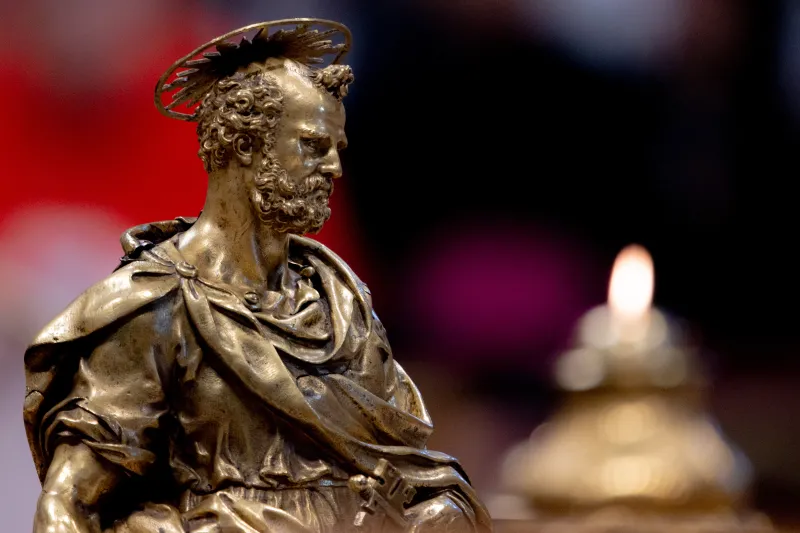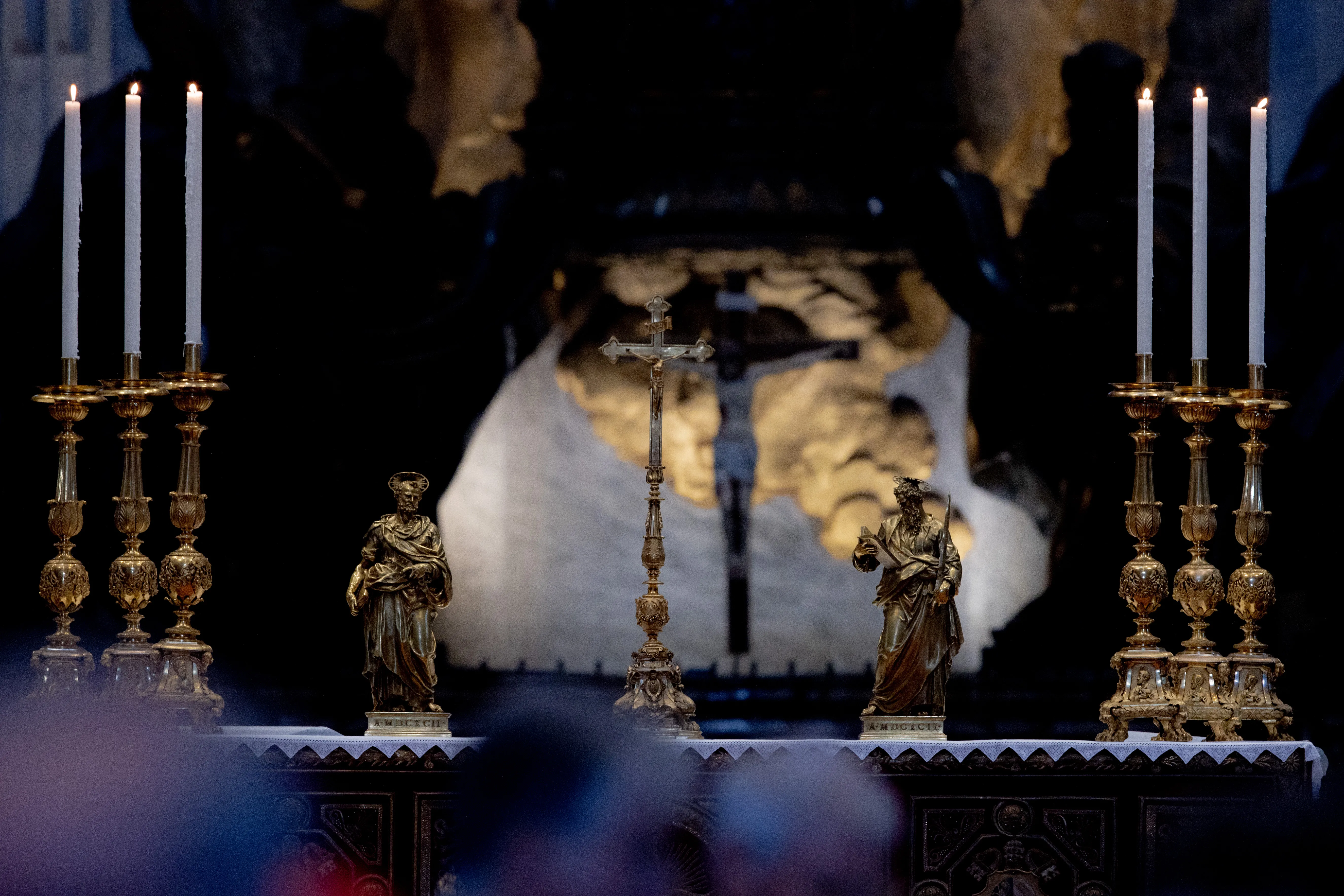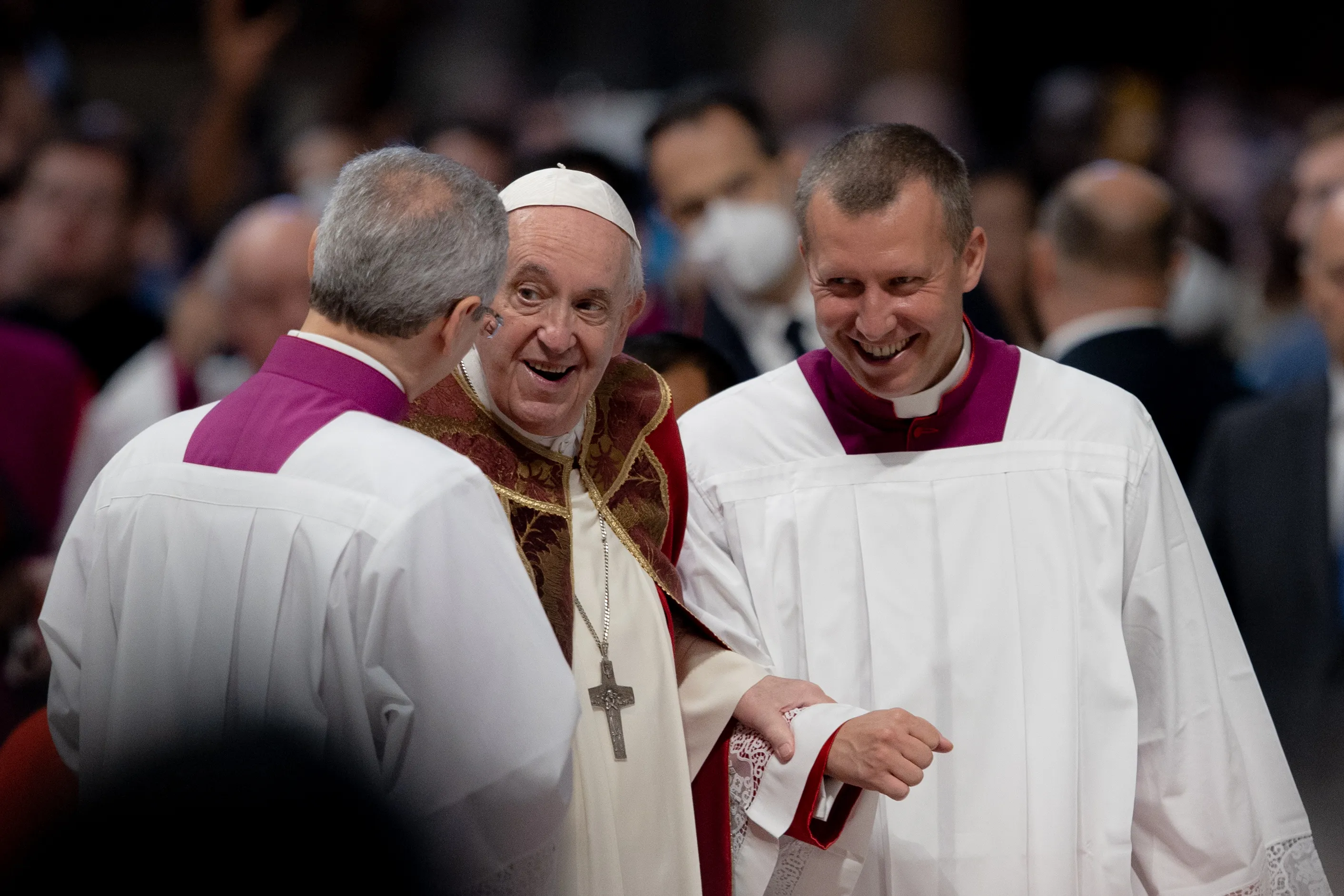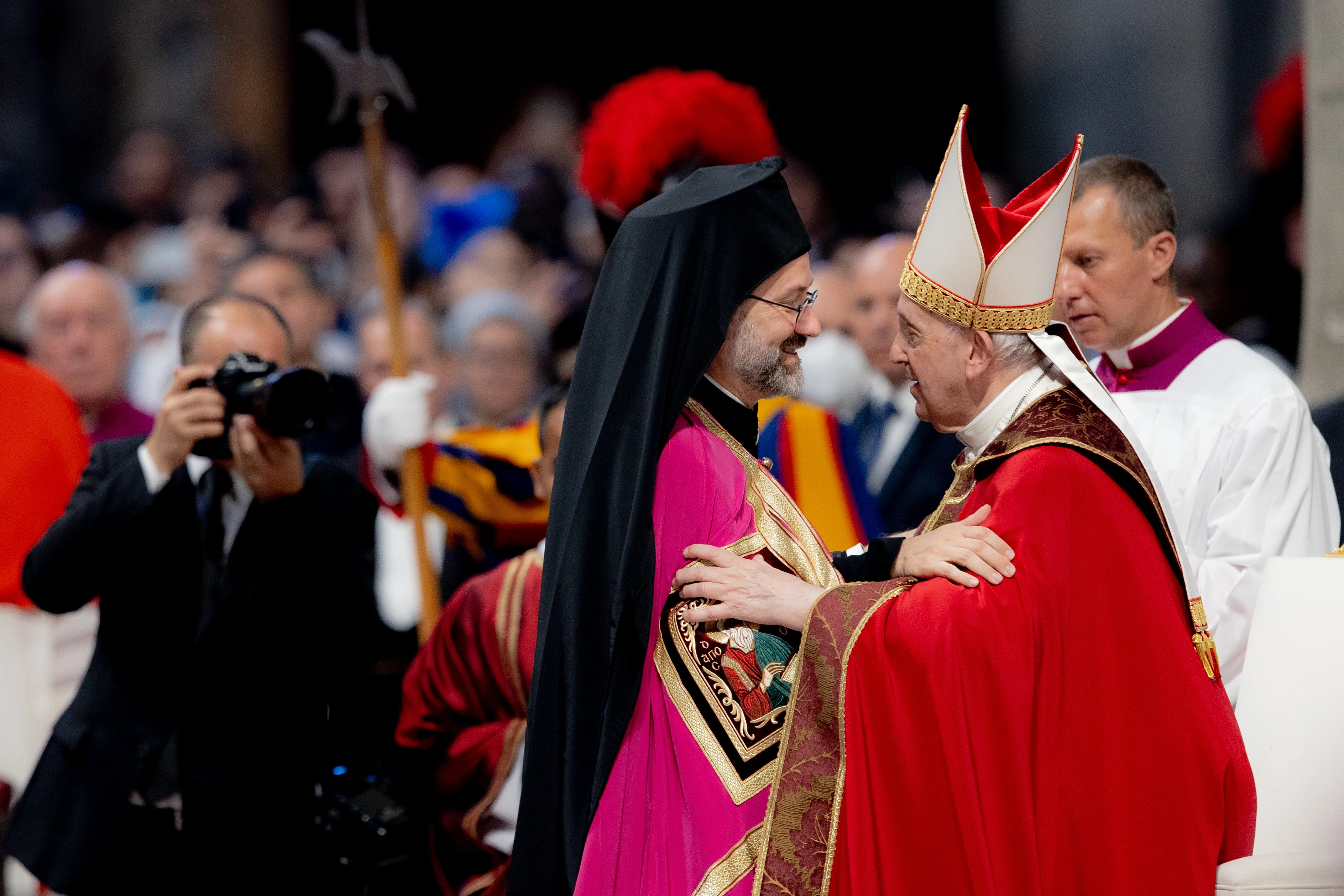
Vatican City, Oct 24, 2017 / 11:16 am (CNA/EWTN News).- For the third year in a row, the Sistine Chapel Choir has released a new CD, which this year is dedicated to Advent and Christmas, and features unique scores based on historic manuscripts from the Vatican Library.
Created in partnership with the classical music label Deutsche Grammophon, the album will be released Oct. 27 in Italy and is titled “Veni Domine: Advent and Christmas at the Sistine Chapel.” It will be released to the rest of the world a week later, on Nov. 3.
Music featured in the album includes a repertoire of scores from several Renaissance manuscripts from the Sistine Chapel reserve of the Vatican library.
A sample of singing we’ll hear on the new Sistine Chapel Choir CD #music #Vatican pic.twitter.com/E0vYEkqZ6X
— Elise Harris (@eharris_it) October 24, 2017
It also features Perotin’s “Beata Viscera Mariae Virginis.” Perotin, also known as “Perotin the Great,” was a European composer, likely French, who lived from around 1160-1230, and became one of the most well-known composers of his time.
The 16-track album also features the voice of Cecilia Bartoli, an Italian mezzo-soprano opera singer and recitalist, who is the first woman to have ever recorded with the choir.
Like previous albums, the CD includes several scores written by Giovanni Pierluigi da Palestrina, an Italian Renaissance sacred music composer who lived from 1525-1594, and is perhaps one of the most well-known composers of sacred polyphony.
The CD was presented Oct. 24 inside the Vatican Press Office by Archbishop Georg Ganswein, prefect of the Pontifical Household; Mirko Gratton, director of the Classical and Jazz Division of Universal Music Italia; and Msgr. Massimo Palombella, director of the Sistine Chapel Choir.
In his comments during the presentation, Ganswein said that when the choir first decided to record CDs three years ago, he never imagined they would enjoy so much success.
The selection of songs included on the new disc, he said, “inspire an intimate joy and immerse us in a horizon of rare beauty that expresses, as St. Alphonsus Maria de Liguori says, the joy of creation and of man for the birth of the Savior.”
What is especially unique about the Christmas album, he said, is that it is based on “translating into music the manuscripts present in the Sistine Chapel reserve of the Vatican Library.”
Ganswein noted that the Sistine Chapel reserve is “one of the largest archives of Renaissance music in the world,” where manuscripts from the greatest composers of this era can be found.
However, apart from shedding light on the historical significance of the music featured, Ganswein said the deeper reason for the CD is the “ecclesial service” the choir, like the rest of the Church, is called to undertake.
“A record production of this type is, in fact, an announcement of the Good News which acts through art, specifically music,” he said, adding that it hopes to inspire “a growth in the spiritual path and even a first questioning about He who is the origin of every beauty.”
It is also through music that the Church is able to go to the existential “peripheries” of the world and “offer to all a concrete possibility of encounter with a God who loves, forgives and wants for each one of us a life in abundance,” he said.
In comments to CNA, Palombella said this year’s CD is important specifically because it uses the ancient manuscripts from the archive of the Vatican Library.
At times, study and research are seen as being opposed to music, he said. However, research actually helps improve the musical product, so that it is “accessible to everyone.”
Without study or research, a person can do pastoral work for the Church, but it will only be “for the moment” and cannot go deeper, he said.
Noting how retired Pope Benedict XVI has a strong appreciation for music, Palombella said Pope Francis “ is absolutely in continuity” on this point, and has both supported and encouraged their work because “it is directed toward evangelization.”
Music, he said, echoing Archbishop Ganswein, also has the ability to reach people on the peripheries, “because many people would never have access to evangelization if it weren’t through music and art.”
As in previous years, all funds collected from sales of the CD will go directly to the papal charities.
If you value the news and views Catholic World Report provides, please consider donating to support our efforts. Your contribution will help us continue to make CWR available to all readers worldwide for free, without a subscription. Thank you for your generosity!
Click here for more information on donating to CWR. Click here to sign up for our newsletter.











Leave a Reply